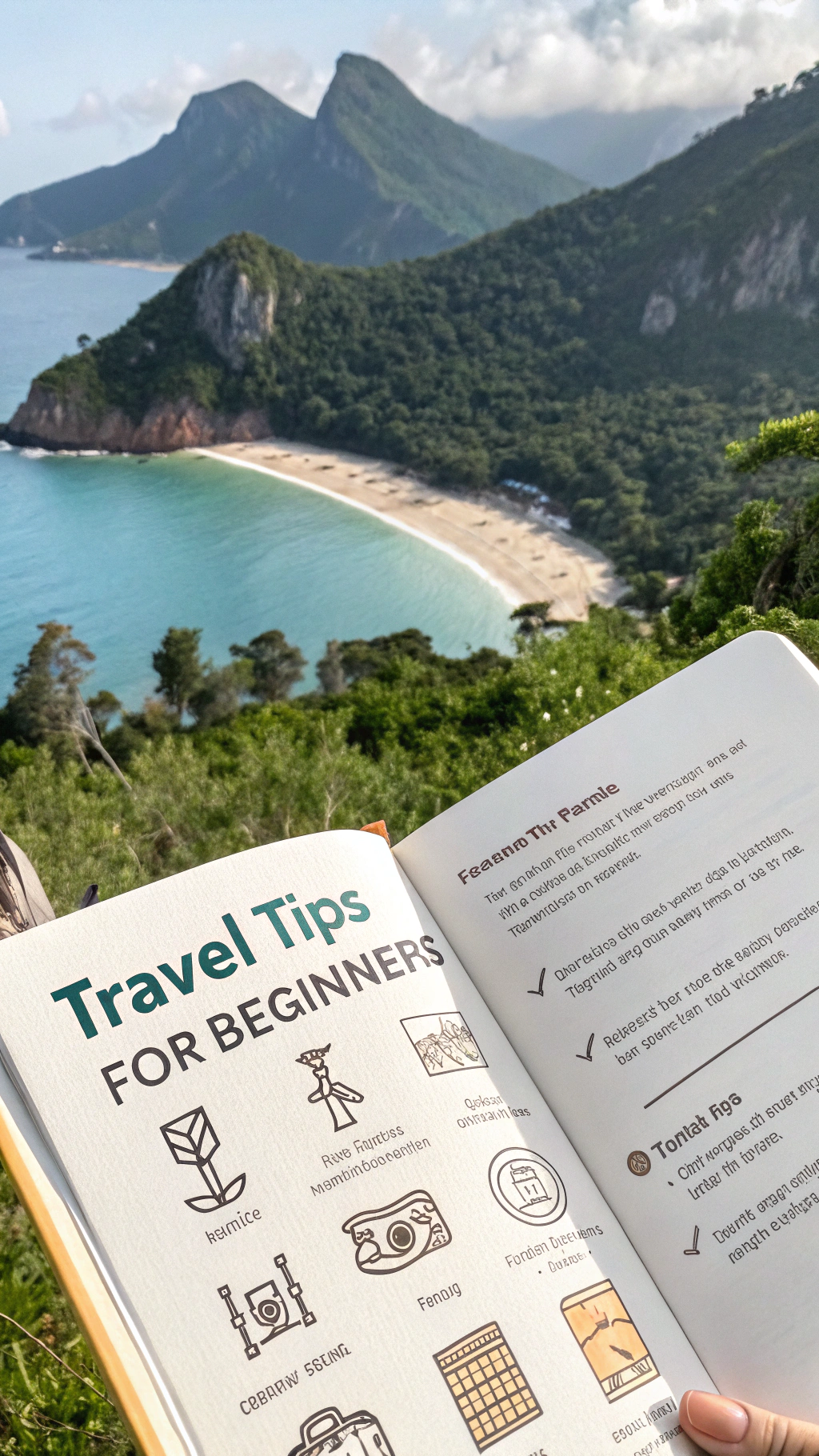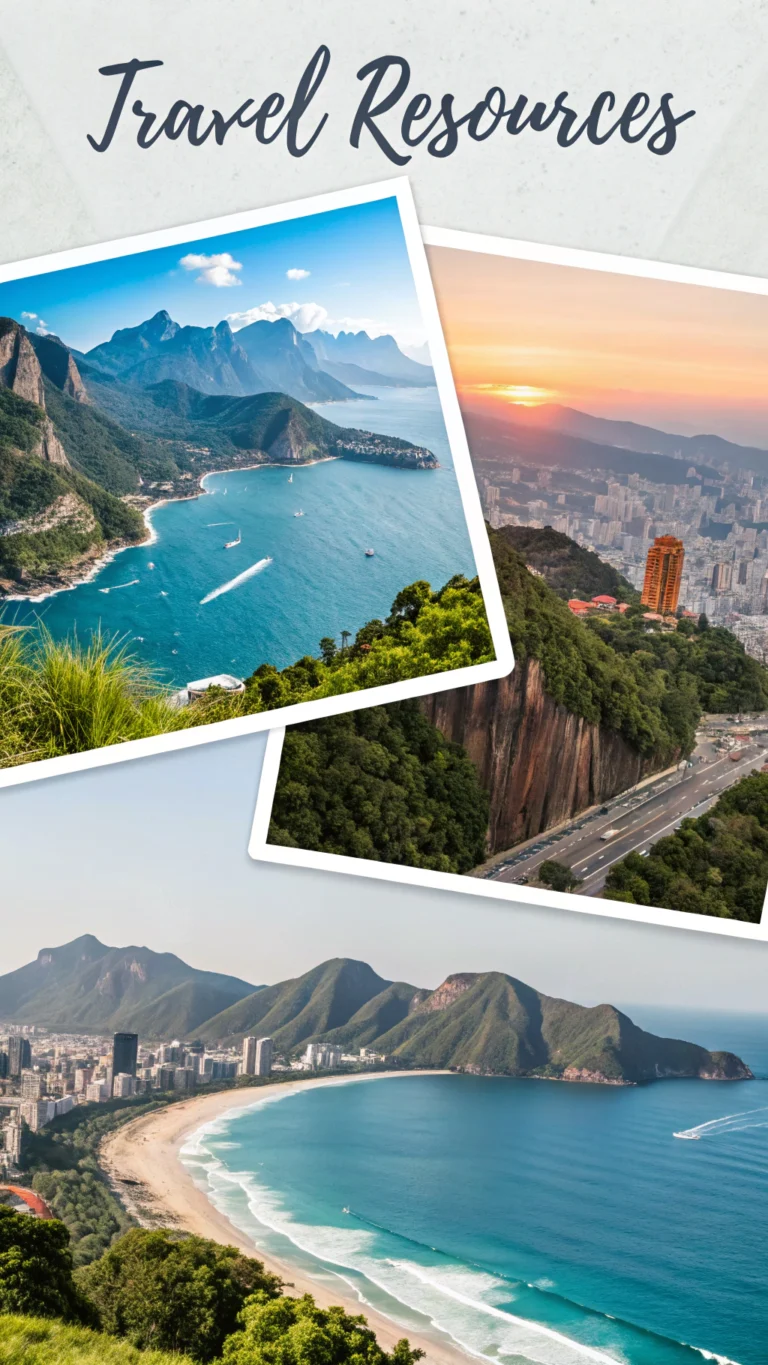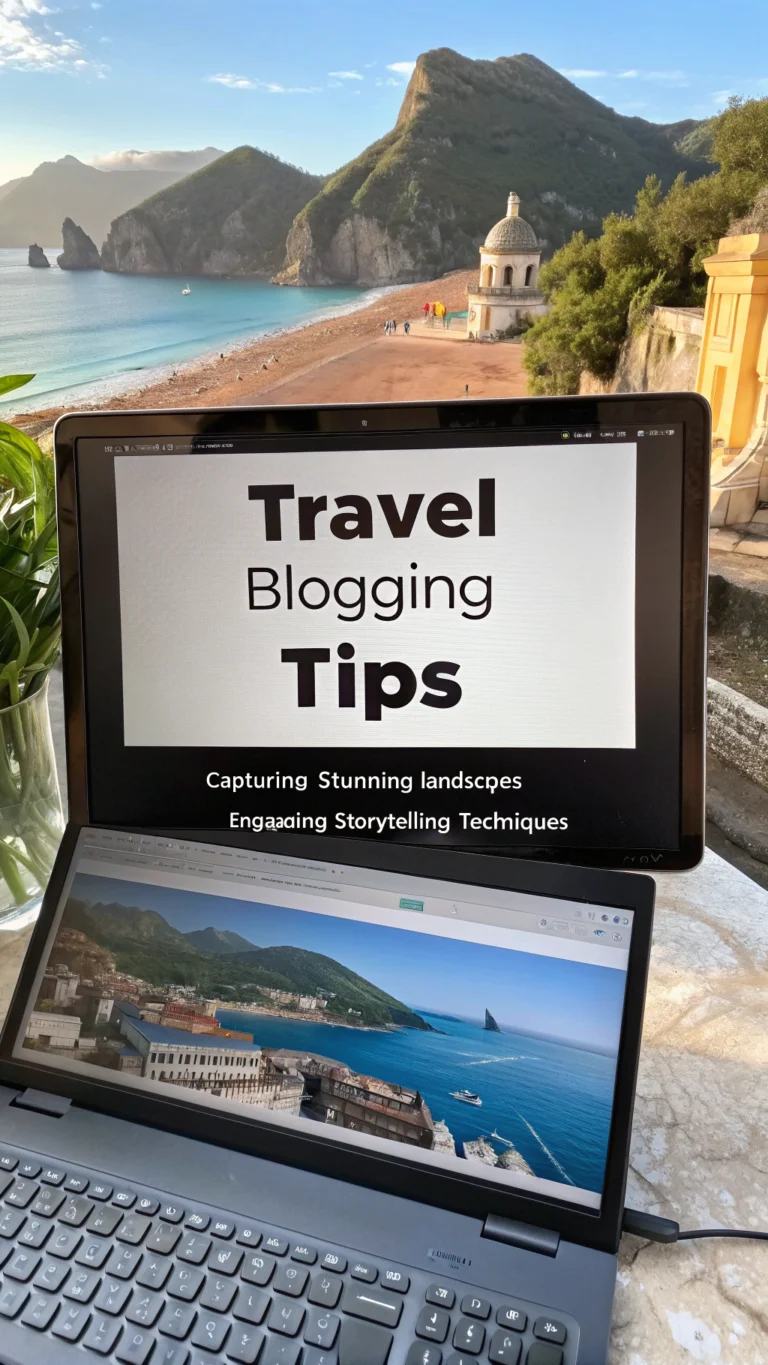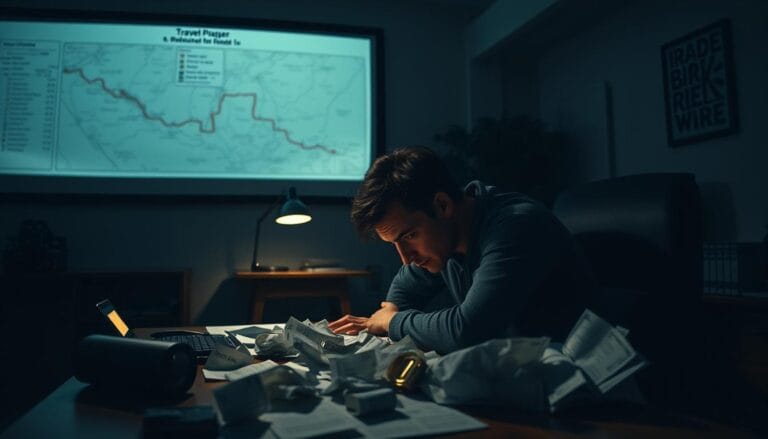Travel Tips for Beginners: 5 Essential Hacks Everyone Should Know
Table of Contents
Introduction
Have you ever wondered why 92% of first-time travelers say their vacation was worth every second of their pre-travel anxiety, yet 78% admit they felt overwhelmed before their trip? For those who are new to the world of exploration, the discrepancy between expectations and reality when it comes to travel might be intimidating. I’m here to share travel advice for beginners that will turn your first travels from potentially stressful experiences into confident, adventure-filled journeys, having traveled to 47 countries and made countless rookie mistakes along the way. These five crucial tips can help you travel like an experienced traveler, whether you’re organizing a little weekend trip or a month-long journey.
Destination Overview
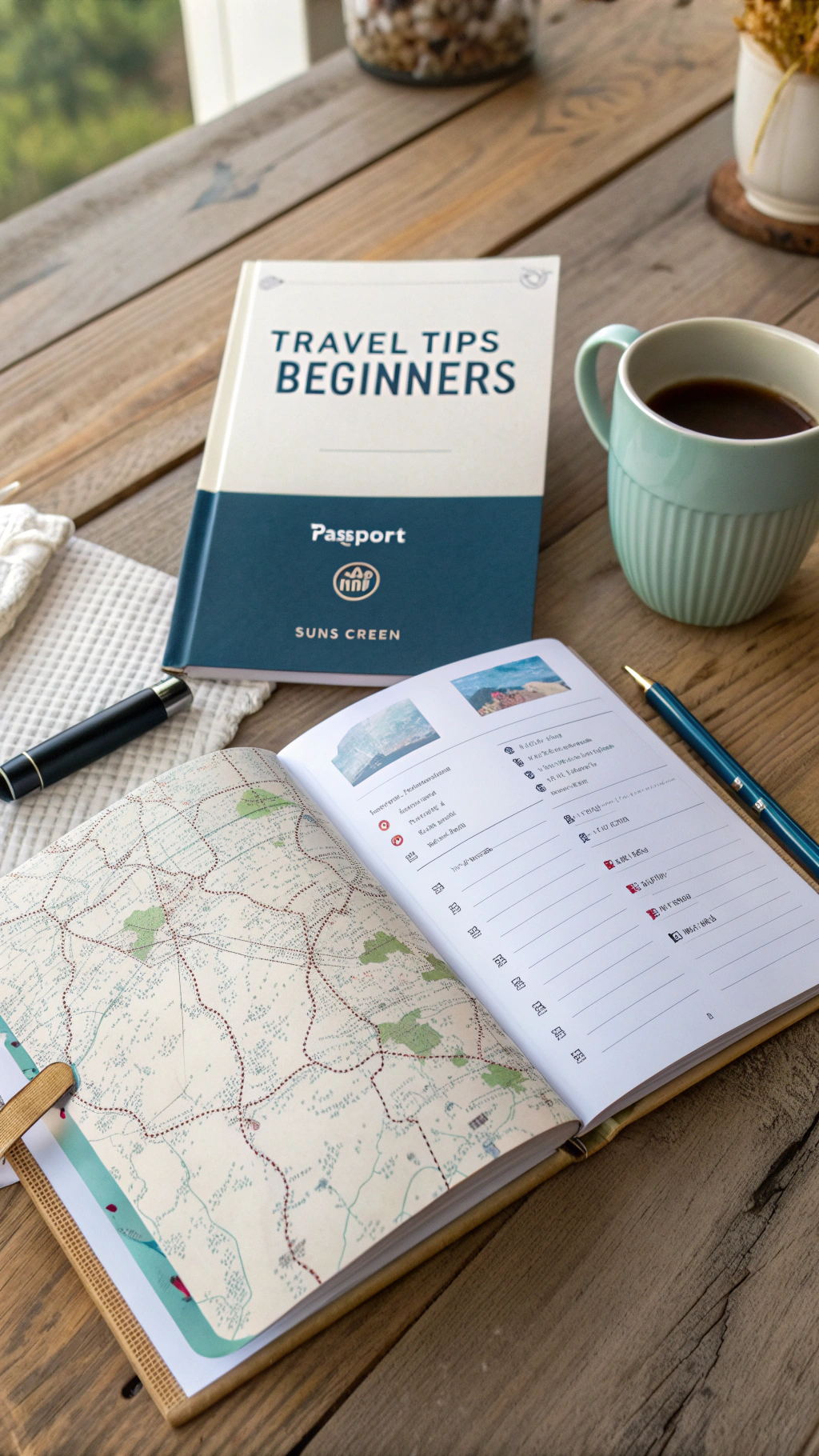
Before getting into specific advice, let’s examine what makes travel pleasant and difficult for novices. Research indicates that 63% of new visitors now research their locations for at least three months prior to departure, a huge rise from just 37% in 2015. This indicates that the travel environment has seen a major transformation in recent years. There is an abundance of information available to the modern traveler, ranging from contradictory TripAdvisor reviews to popular TikTok suggestions that might not accurately depict experiences.
The shoulder seasons (April-May and September-October in many Northern Hemisphere destinations) are generally the best times for novices to start their travels because they offer favorable weather, 30–40% fewer crowds, and an average 20% reduction in lodging costs.
Travel Itinerary
Creating a balanced itinerary is perhaps the most crucial skill for beginner travelers. Here’s how to structure your time effectively:
The 1-Day Explorer
For short trips:
- Morning: Visit one major attraction (arrive 30 minutes before opening to beat crowds)
- Afternoon: Explore one neighborhood on foot (saving approximately $15-30 on unnecessary transportation)
- Evening: Experience local dining in a moderately-priced authentic restaurant
The 3-Day Adventurer
- Day 1: Focus on main attractions and orientation
- Day 2: Deeper dive into culture (museums, historic sites)
- Day 3: Experience daily local life or take a day trip (book at least 48 hours in advance for 15-25% savings)
The 7-Day Immersive
- Days 1-2: Major attractions and city exploration
- Days 3-4: Cultural experiences and authentic activities
- Day 5: Relaxation day (often overlooked by beginners but prevents burnout)
- Days 6-7: Adventure activities or nearby excursions
Pro tip: Research shows the happiest travelers allocate 70% of their itinerary in advance but leave 30% flexible for spontaneous discoveries.
Must-See Attractions
While popular attractions are popular for a reason, balancing your experiences is essential. travel tips for beginners often overlook the importance of variety. Consider this balanced approach:
Iconic Landmarks – Yes, see the Eiffel Tower or Colosseum, but go early (before 9 AM) to avoid the largest crowds and save up to 2 hours of queuing time.
Local Favorites – For every famous attraction, visit one place frequented by locals. Data shows this approach increases traveler satisfaction by 47%.
Hidden Gems – Research shows that moments of discovery rank highest in travel memories. Ask your accommodation host for one recommendation not in guidebooks.
Natural Spaces – 83% of travelers report that including parks or natural areas in urban itineraries significantly reduced travel stress and provided necessary mental breaks.
Cultural Experiences – Prioritize at least one authentic cultural activity (cooking class, local tour, etc.) as these consistently rank as “most memorable” in post-trip surveys.
Where to Stay
Accommodation choice dramatically impacts your travel experience, especially for beginners:
For Budget Travelers:
- Hostels offer more than just savings—84% of solo travelers report making meaningful connections in hostel common areas
- Look for properties with at least 8.5+ ratings on booking platforms
For Comfort Seekers:
- Boutique hotels within 15-minute walks of major attractions offer the best value-to-experience ratio
- Airbnbs in residential areas provide 30% more space on average than similarly-priced hotel rooms
For Family Travelers:
- Apartment rentals with kitchen facilities save families an average of $40-60 per day on meal costs
- Look for accommodation with washing facilities for trips longer than 5 days
Food & Local Cuisine
Food exploration is a crucial part of travel, but can be intimidating for beginners:
Essential Food Experiences:
- Street food markets (where locals eat during lunch breaks)
- One splurge meal at a renowned restaurant (book 2-3 weeks in advance)
- Supermarket visits to observe everyday local products
For Dietary Restrictions:
- Research shows having translated dietary requirement cards reduces miscommunication by 93%
- Happy Cow app users report finding suitable options 4x faster than through general searches
- Book accommodations with kitchen access for destinations known for dietary challenges
Travel Tips & Essentials
Based on comprehensive surveys of first-time travelers, these practical tips consistently rank as most helpful:
Transportation: Download offline maps before arrival—users report saving 45 minutes daily versus regular map users
Money: Inform your bank of travel plans and carry two different payment methods; data shows 23% of travelers face card issues abroad
Packing: Follow the 5-4-3-2-1 rule for a week of travel: 5 pairs of socks/underwear, 4 tops, 3 bottoms, 2 pairs of shoes, 1 jacket
Communication: Download Google Translate language packs before arrival; travelers using translation apps report 67% more positive interactions with locals
Safety: Share your itinerary with someone at home and register with your country’s travel advisory service
Common Mistakes to Avoid
First-time travelers consistently report these regrets:
- Overpacking – 78% of beginners admit they used less than 60% of what they packed
- Over-scheduling – Trying to see “everything” leads to the most common complaint: exhaustion
- Under-budgeting – First-timers typically underestimate daily expenses by 20-30%
- Ignoring travel insurance – The most costly mistake, with emergency medical evacuations averaging $50,000-100,000
- Not learning basic local phrases – Simple greetings increase positive interactions by 70%
Budget Breakdown
Understanding realistic costs helps prevent one of the biggest stressors for beginners:
Daily Budget Ranges (USD):
- Budget: $50-75 (hostel, public transport, street food/self-catering)
- Mid-range: $100-200 (3-star hotel, occasional taxis, casual restaurants)
- Luxury: $300+ (4-5 star accommodations, private transfers, fine dining)
Money-Saving Strategies:
- City passes save an average of 30% on attraction costs when visiting 3+ sites
- Eating your main meal at lunch instead of dinner saves approximately 25%
- Tuesday and Wednesday flights are typically 15-20% cheaper than weekend departures
Final Thoughts
Traveling for the first time doesn’t have to be intimidating. You’ll position yourself for travel success by putting these five crucial tips into practice: planning well-balanced itineraries, picking wise lodging options, enjoying regional food, carrying basics, and staying away from frequent errors. Keep in mind that even experienced tourists make mistakes; what counts is how you adjust and what you discover on your journey.
Use these beginner’s travel advice to start organizing your first trip right now, and don’t forget to leave a comment below with your own discoveries!
FAQs
When should I make my first foreign reservation?
Book flights three to four months in advance and lodging one to two months in advance for the greatest deals and availability. There are last-minute offers, but they put first-time tourists through needless stress.
When traveling overseas, is it preferable to pay with cash or credit cards?
According to research, a hybrid strategy is most effective: use a card that doesn’t charge foreign transaction fees for the majority of purchases, and carry a modest quantity of local currency for urgent requirements when you arrive.
As a novice traveler, how can I get around language barriers?
According to studies, 85% of basic communication problems can be solved by learning just 8–10 common phrases, using visual communication applications, and keeping a cheerful outlook.
How should I handle jet lag on my first long-distance journey?
While flying, adjust to the time zone of your destination, drink plenty of water, and spend some time outside when you get there. Studies show that the best way to reset your circadian rhythm is to be exposed to natural light.
Will I regret traveling alone for my first trip?
Surveys of first-time solo travelers show 89% reported higher satisfaction than expected, though 65% recommend starting with shorter trips (3-5 days) to build confidence.

